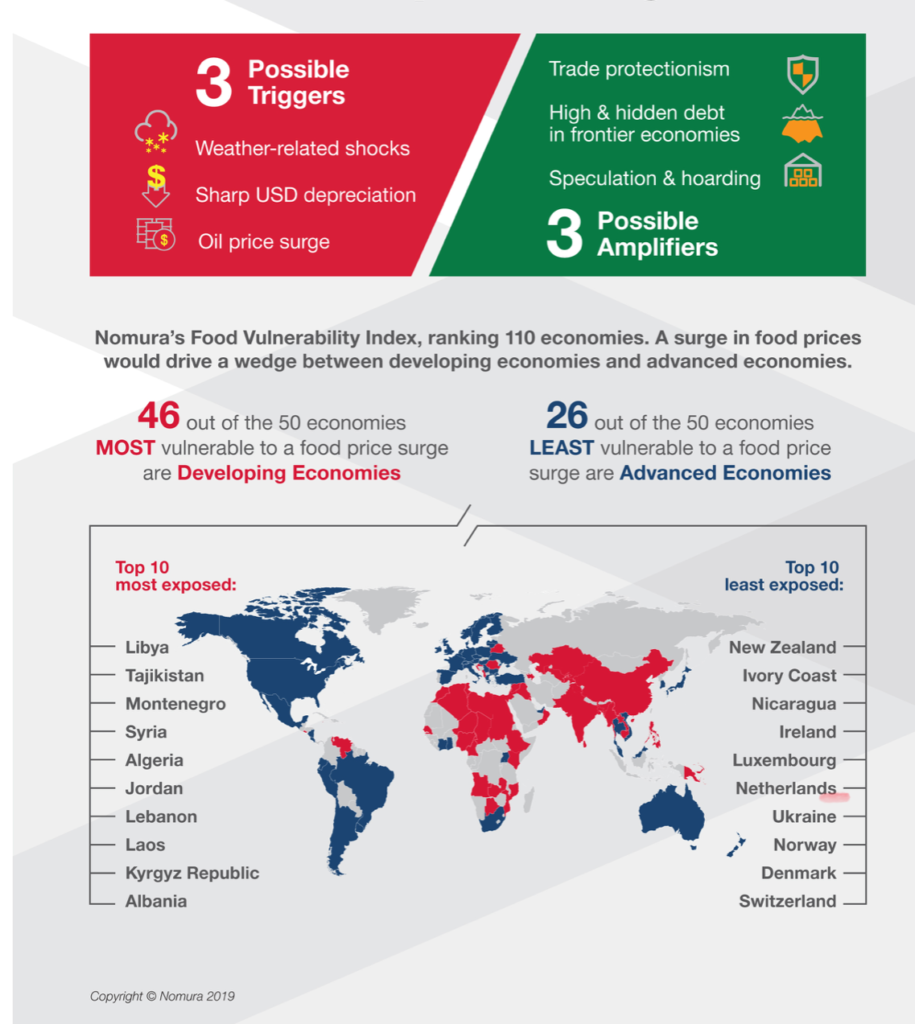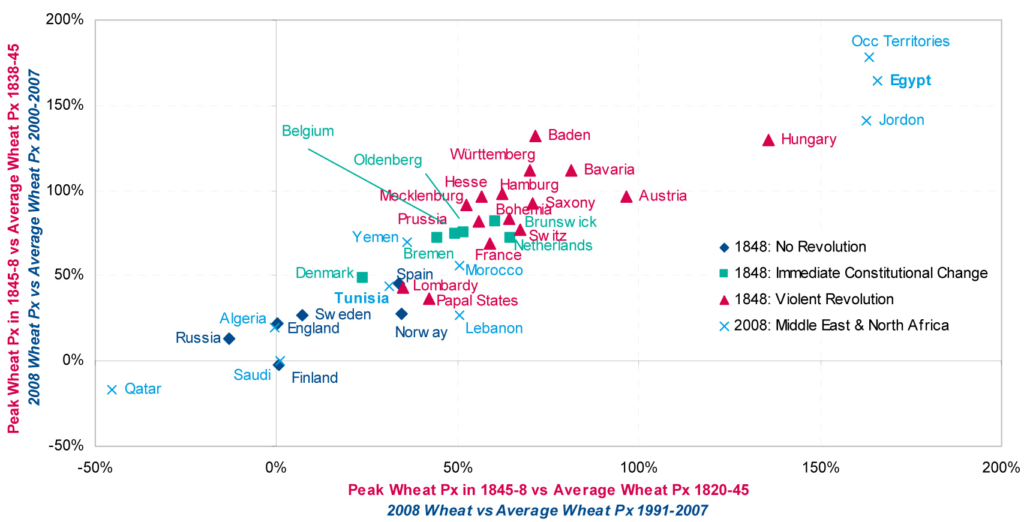
Date: 18 June, 2020 - Blog
Ahead of a food crisis ?
The global framework for food prices has become more uncertain with climate change and the consequential extreme weather conditions. For instance, a major locus blight in 70 years has been destroying crops in East Africa. This was before the pandemic…
Nomura food vulnerability analysis

Source: Nomura
According to World Bank: ¨By itself, the COVID-19 pandemic has the potential to create a severe food security crisis in Africa, as elsewhere, as agricultural production contracts and food imports decline. Local agri-food supply chains are already experiencing disruptions, including reduced access to inputs and services, labor movement, transport and roadblocks, and credit or liquidity due to COVID-19. In particular, the pandemic is disrupting the supply chains for pesticides and other equipment necessary to control the spread of locusts.¨
Labor shortages due to cross-border travel restrictions impact harvesting fruits and vegetables in India, as well as meat plans in America. Farmers must abruptly change their distribution networks from wholesale (closed restaurants, hotels, schools) to grocery stores and home delivery. India and Vietnam (rice), Russia and Kazakhstan (grain) imposed exports’ ban.
Food security is under threat
Food protectionism is on the rise
Elusive multilateral response
Arab Spring erupted notably because grain prices, sugar spiraled up, as well as other food prices. China experienced its Great Famine in 1959 and 1961. Before and after these dramatic episodes, it also suffered numerous food shortages. Now, fortunately, poor Chinese people no longer need to worry about food. Still, while China self-sufficiency ratio of wheat, rice and corn is about 95%, in contrast, about 80% of consumed soybean and other agri-products, such as milk and sugar, are imported! China’s water situation is actually problematic with low efficiency.
Bread Prices, 1848 and 2011

Last months, G20 and multilateral organizations – namely IMF – suspended debt service and provided emergency loans to many developing countries. Much more needs to be done, targeting disruptions of food chains, and confronting rampant food protectionism. Rapidly.
- Recession coupled to a rampant food crisis represent an explosive cocktail for social unrest
- Risks of a global food crisis are rising. It deserves an urgent and multilateral response by advanced economies
- Developing and Frontier countries are particularly vulnerable
- Such a crisis may durably penalize their economies, as well as their currencies and financial markets





